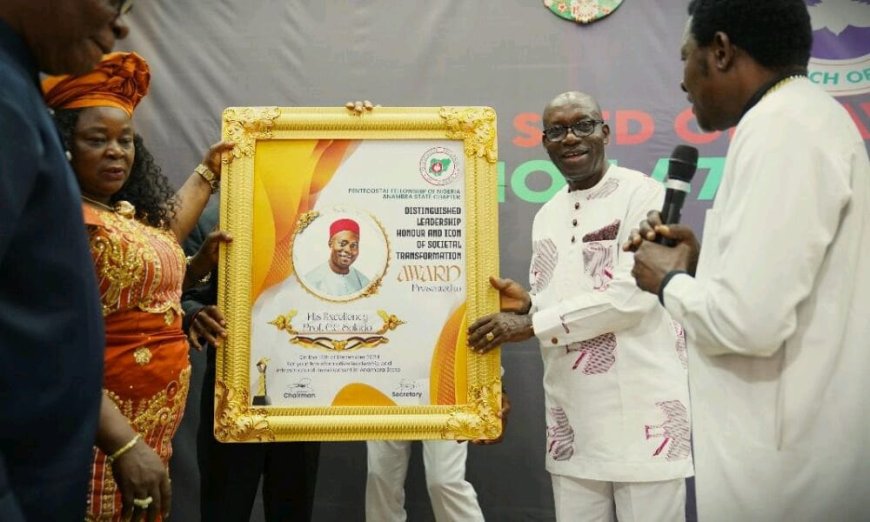SOLUDO: AN ICON OF LIBERALISM IN FAITH
SOLUDO: AN ICON OF LIBERALISM IN FAITH

The issue of religious faith is personal, yet its expression in public affairs takes a healthy dose of tolerance and liberalism to foster peace and unity in a multi-religious society like Nigeria. Yet, as sensitive as inter-facing religion with governance can be in our polity, Governor Chukwuma Charles Soludo, CFR, of Anambra State has been a remarkable exemplar of inclusive governance and spiritual unity. His recent recognition by the Pentecostal Fellowship of Nigeria (PFN), Anambra State chapter, as an “Icon of Societal Transformation” poignantly points to a leadership philosophy that transcends religious boundaries and celebrates collective progress.
Indeed, Governor Soludo’s approach to governance has always been refreshingly distinct. While many pay lip service to religious tolerance, he has acted by systematically institutionalising interfaith dialogue and mutual respect. For instance, by introducing morning devotional prayers at the Governor’s Lodge that rotate among Catholic, Anglican, and Pentecostal denominations, he has transformed a simple administrative space into a symbolic arena of religious unity.
Professor Soludo’s prior recognition as the “Father of Ecumenism” and now as an “Icon of Societal Transformation,” both reflects a deeper philosophical stance. As a Catholic who consistently preaches that “the body of Christ" is one,” Governor Soludo embodies a theological perspective that sees beyond denominational differences to the core Christian principles of love, inclusivity, and mutual respect. It is religious maturity at its most decent.
But the governor’s commitment goes far beyond only Christian gestures. As an all-embracing leader, he has created an enabling environment in Anambra State where Muslims and others of different religious persuasions are free to practise their faiths unmolested. During Muslim festivals, he has hosted Muslim leaders on visits to the Governor’s Lodge. His leadership model fundamentally rejects the divisive religious and ethnic narratives that have historically fragmented Nigerian society. And by ensuring that appointments to public offices are based on merit rather than religious affiliation, Governor Soludo further demonstrates a progressive understanding of leadership that prioritises competence and shared vision.
Ultimately, in a society often challenged by religious tensions, the PFN’s award to Governor Soludo goes beyond the recognition of an individual to prove a salient point about the potential for enlightened leadership in Nigeria. It signals hope that political leaders can indeed be catalysts for social cohesion, mutual understanding, and progressive development. Governor Soludo has set a benchmark about bringing people together, transcending divisive boundaries, and creating a shared vision of progress. In doing so, he offers a worthy example for governance that is at once pragmatic, inclusive, and profoundly positive.






















